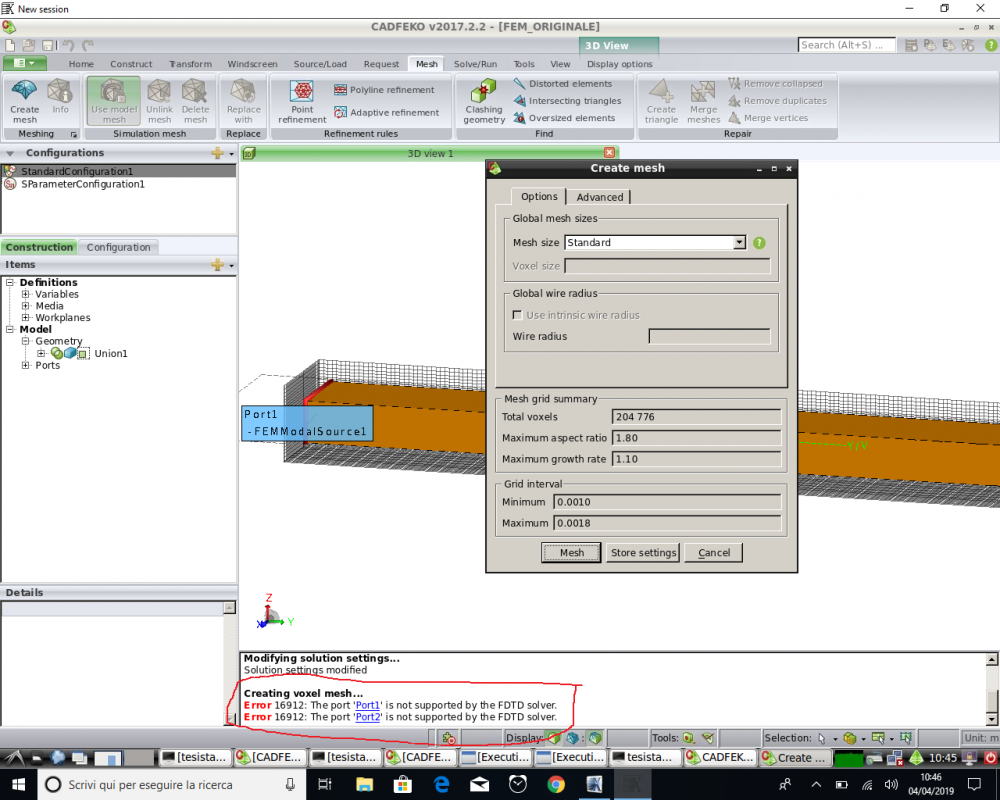Hello,
I have the following problem.
I would like to solve my electromagnetic problem using the 'Time Domain Solver (FDTD).
First of all I activated the Finite Difference Time Domain from the 'Solver settings' menu.
After doing this, the problem I find is that I can't apply the mesh to the rectangular waveguide, giving me a problem on the ports I've applied to it.
Can someone help me?
<?xml version="1.0" encoding="UTF-8"?>
Unable to find an attachment - read this blog